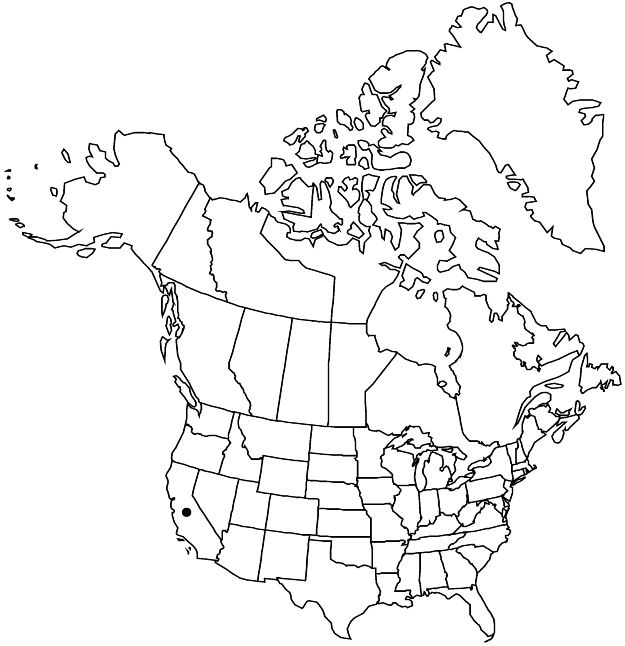Ceanothus verrucosus
Fl. N. Amer. 1: 267. 1838.
Shrubs, 1–3 m. Stems erect to ascending, not rooting at nodes; branchlets grayish brown, rigid, tomentulose. Leaves alternate, not fascicled, often crowded; petiole 1–3 mm; blade flat to cupped, widely obovate to suborbiculate, 5–14 × 3–10 mm, base cuneate to rounded, margins not revolute, entire to weakly denticulate distal to middle, teeth 9–16, apex truncate to retuse, abaxial surface pale green, sparsely strigillose, glabrescent, adaxial surface dark green, glabrous. Inflorescences axillary, 1–1.5 cm. Flowers: sepals and petals white; nectary black. Capsules 4–6 mm wide, weakly lobed; valves smooth, horns minute or absent, intermediate ridges absent. 2n = 24.
Phenology: Flowering Jan–Apr.
Habitat: Slopes, coastal mesas, chaparral, pine woodlands.
Elevation: 20–800 m.
Distribution

Calif., Mexico (Baja California).
Discussion
Ceanothus verrucosus occurs from San Diego County to the foothills of the Sierra San Pedro Mártir and Cedros Island in northern Baja California, Mexico; its habitat is threatened by development and urbanization throughout its range.
Selected References
None.